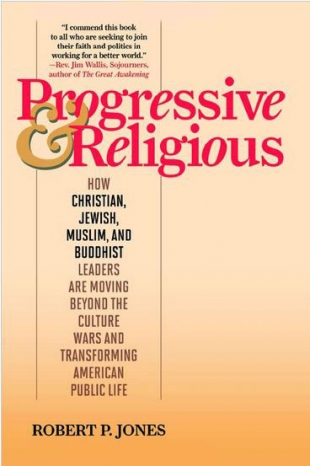"In the Abrahamic traditions, this conviction follows from the belief that all are created in the image of God, that all have the divine breath within them. Rev. Steven Baines of the Faith Action Network at People for the American Way Foundation claimed Genesis 1, which depicts humanity being created in God's image, as the foundation of his theology. He explained the impact of that belief on his own perspective as follows: 'If humanity is made in God's image, then every act that I do to another living person, I'm doing to the image of God.' Likewise, Dr. Kecia Ali noted the centrality of an egalitarian understanding of creation for feminist and progressive Muslim scholarship. She noted that the fourth chapter of the Qur'an declares: 'Oh people, be conscious of your Lord who created you from a single soul and created from her, her mate; and from them, many men and women scattered far and wide.' From this perspective, the unity of humanity is deep indeed; all people, men and women, are not only created by God but are descended from a single soul.
"In the Buddhist tradition, this sense of oneness goes beyond human beings to all sentient beings. Bill Aiken of Soka Gakkai International — USA explained that individual beings are like waves on the ocean. Although each wave has a sense of its own separateness (its 'lesser self'), it is better understood as part of the ocean (its 'greater self'). 'Buddhism,' Aiken explained, 'is about awakening to the larger truth that you're part of the ocean — not just part, you are the ocean.' Similarly, Dr. Bernie Glassman of Zen Peacemakers noted the importance of the foundational truth that 'we're all connected to the one universe,' and explained that when the truth of that insight is in full bloom, we can truly engage in 'loving actions.' Loving actions flow from us naturally when we realize, for example, that in working for the homeless, we're 'taking care of the homeless part' of ourselves.
"The implications of this basic insight about the unity of all humanity are fairly radical. As many leaders emphasized, God created human beings to share not only a common origin but also a shared fate. Susan Moon of Turning Wheel Magazine noted that this belief in the oneness of all sentient beings is the essence of the bodhisattva understanding that 'no one is really free until everyone is free.' Dr. Rosemary Radford Ruether of Claremont Graduate School noted a similar conviction rooted in her work on liberation theology from a Catholic perspective, that 'any liberation which is somebody's else's disaster is false liberation.' And Rev. Dr. Kenneth L. Samuel of Victory Church in Stone Mountain, Georgia, eloquently noted that when we pursue policies that are not aimed at the good and inclusion of all, it will ultimately 'lead to our detriment' because 'in God's providential design, we are one human family.'
"This vision of human unity and commitment to solidarity not surprisingly leads to an 'image of God' agenda that, as Simon Greer of Jewish Funds for Justice explained, represents a courageous and 'prophetic calling beyond the winnable issues.' These issues include the triad of common good issues that Rev. Bob Edgar of the National Council of Churches memorably called 'peace, poverty, and planet earth.' For many, this prophetic calling — rooted in a rigorous engagement with tradition and an attentive listening for God's voice for our day — also led their communities to support full inclusion and justice for LGBT persons and to say unequivocally to all people, 'we will welcome you and embrace you.' And even among the minority of leaders I interviewed who have concluded that sexual acts between adults of the same sex run contrary to their best understanding of their religious tradition or who are still listening for God's voice on LGBT issues, the belief in the oneness of humanity leads them to clearly reject the politicization of these issues and the demonization of people, which has done so much damage not only to the country but to religion itself."
